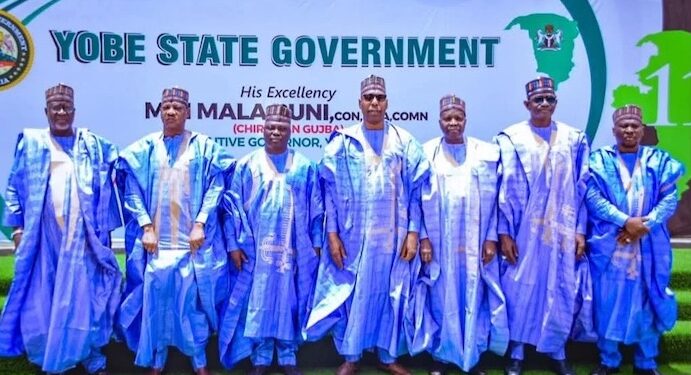The 11th meeting of the North-East Governors’ Forum (NEGF) convened on Thursday in Damaturu, Yobe State, bringing together governors from the six Northeastern states to deliberate on pressing regional challenges, including insurgency, agricultural revitalization, and poverty alleviation.
Chaired by Borno State Governor, Professor Babagana Umara Zulum, the high-level summit featured governors from Adamawa, Bauchi, Borno, Gombe, Taraba, and host state Yobe. The discussions focused on forging collective strategies to combat resurging Boko Haram attacks, stimulate regional agriculture, and address deep-rooted socio-economic issues.
In his opening remarks, Governor Zulum underscored the need for regional unity in the fight against terrorism, noting that coordinated efforts have made the forum a significant force within Nigeria’s governance landscape.
“As leaders, we must ensure our people live in peace and have access to opportunities. But we cannot do this alone — cooperation among ourselves and support from our citizens is crucial,” Zulum said.
He highlighted the alarming poverty levels in the region, calling for immediate short- and medium-term interventions centered around agricultural development. “By empowering farmers, investing in irrigation, and promoting climate-smart agriculture, we can lift millions out of poverty,” he stated.
Zulum also advocated for stronger private-sector involvement, urging governors to support small and medium-scale industries by improving infrastructure and offering investment incentives.
Yobe State Governor Mai Mala Buni, the host of the event, echoed Zulum’s sentiments, commending the NEGF for enhancing regional cooperation and serving as a platform for proactive decision-making.
“This meeting allows us to assess the outcomes of previous resolutions and develop actionable strategies for emerging challenges,” Buni noted, adding that recent insurgent activity underscores the urgency for stronger federal and community-level collaboration.
He emphasized the role of grassroots involvement in sustainable development, saying, “A community-driven approach must guide our actions as we implement socio-economic measures.”
The event was attended by a cross-section of dignitaries, including secretaries to the state governments, traditional leaders, regional security heads, and representatives from key federal agencies such as the North-East Development Commission (NEDC), the National Commission for Almajiri and Out-of-School Children, and the Nigerian Institute of Leather and Science Technology (NILSET).
A closed-door session followed the public remarks, during which a joint communiqué was drafted and scheduled for release.


